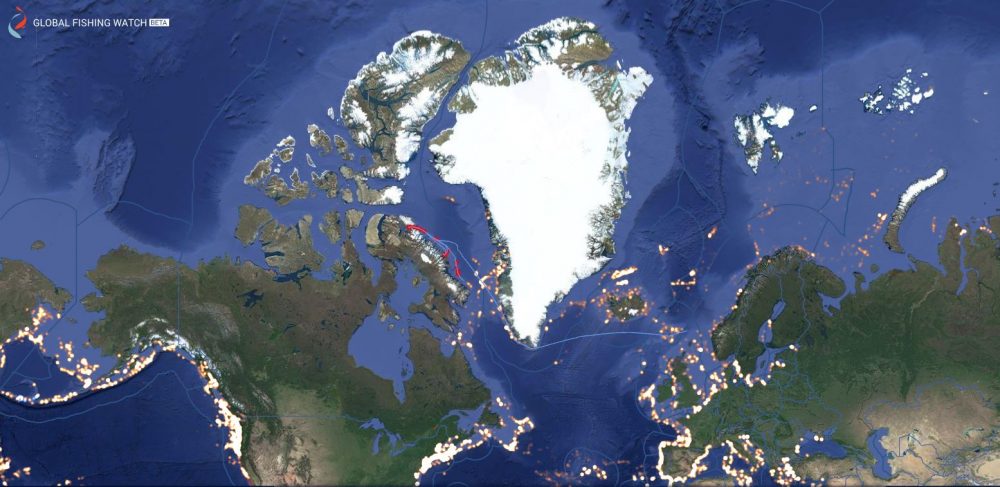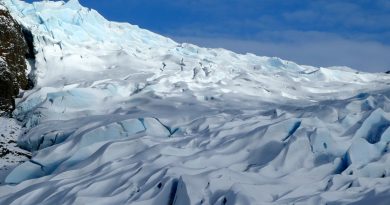Sustainable Arctic fishery monitoring gets powerful digital tool with Global Fishing Watch

Proponents of developing sustainable fishery in the Arctic got a powerful new tool today with the launch of the Global Fishing Watch online platform at the Our Ocean Conference in Washington, D.C.
The free online platform allows anyone in the word to monitor and track the activities of the world’s largest commercial fishing vessels in near real-time.
Ocean conservation advocacy group Oceana, technology non-profit SkyTruth and tech giant Google teamed up to create Global Fishing Watch, which tracks and monitors the apparent fishing activity of more than 35,000 commercial fishing vessels operating throughout the world.
“The high seas are hard to police and hard to see and it’s especially so in the Arctic where it’s dark large parts of the year and dangerous, and remote,” said Josh Laughren, executive director of Oceana Canada. “As more and more of the Arctic Ocean opens up due to climate change, we’ve got more and more waters to police and we’ve got more and more interest in going in and accessing resources there, like fishing.”
Policing and monitoring this huge new area through traditional tools will be increasingly difficult, Laughren said.
“The Global Fishing Watch gives us a powerful new way to complement enforcement efforts by being able to remotely keep an eye on what vessels are going through and when we see fishing activity and when we see potential illegal activity that can be of enormous value to the countries trying to police those waters,” Laughren said.
The online platform uses public broadcast data from the Automatic Identification System (AIS) transponders installed on ships of certain size, which is then collected by satellite and terrestrial receivers, to show the movement of vessels over time.
The Global Fishing Watch can be used by governments, journalists, citizens, researchers and the fishing industry to track suspicious vessels, enforce rules, to identify behavior that may be related to illegal fishing or overfishing, Laughren said.
“Really anyone can use it and really crowdsource the enforcement on our oceans, which simply hasn’t been possible before,” Laughren said.
“You can check the names of the vessels, where they are registered, and you can check against the fishing registry too. The governments can test whether those vessels are licensed to fish in that area, and what their license is to fish for.”
The online platform has built-in algorithms to identify suspicious behaviour by fishing vessels, such as offloading catch to another vessel, an often illegal way to hide the catch.
“For any user it’s an interesting, fascinating look at the activity on our oceans,” Laughren said. “For those who want to dig in more there is ways to turn it into a powerful enforcement tool.”
Related stories from around the North:
Canada: Applying lessons learned to future Arctic fishery, Eye on the Arctic
Finland: EU drops seal-protection complaint against Finland, Yle News
Greenland: The donut hole at the centre of the Arctic Ocean, Blog by Mia Bennett
Norway: Climate change will lead to ecosystem clash, Barents Observer
Sweden: Record numbers for Swedish wild salmon, Radio Sweden
Russia: Oryong 501 sinking highlights Arctic fishing, shipping issues, Blog by Mia Bennett
United States: Ice retreat threatening Bering Sea pollock, Alaska Public Radio Network



